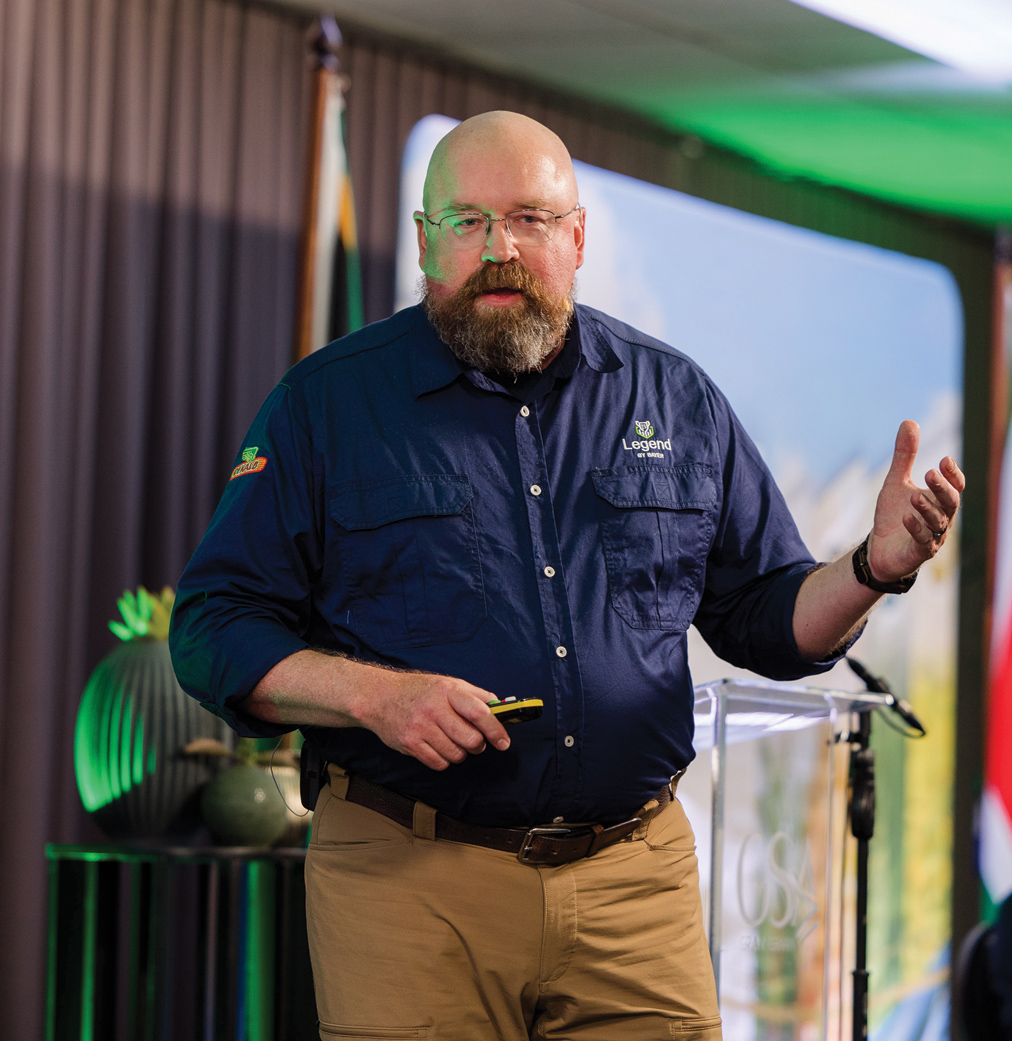Todd Heap, Bayer Global Corn Strategy lead: North America, Europe, the Middle East and Africa, highlighted the significance of DEKALB’s 20-year presence in South Africa during a presentation at Grain SA’s recent Congress at NAMPO Park. He emphasised the brand’s substantial contribution to driving innovation, enhancing yield potential, and improving profitability for grain producers through its adapted genetics, biotechnology, and stacked traits.
Looking ahead, he noted that despite challenges, the future of grain production in South Africa remains promising, with even more innovations on the horizon.
What was accentuated during the presentation is that over the next 25 years, two billion more people will need to be fed, with much of that growth in Africa. South Africa, with its strong agricultural infrastructure, is key in addressing this challenge. As achieving food security requires producing more with less, innovation becomes essential for sustainable grain production, and Bayer offers an integrated approach to address these challenges.

Genetics and technology are shaping the future of farming
Heap pointed out that advanced breeding techniques, including gene editing and precision breeding, are revolutionising crop production. South African grain producers benefit from these innovations, growing crops more resilient to droughts, pests, and diseases. By providing strong genetic foundations, Bayer ensures high yields and better resistance, paving the way for a sustainable future.
These seeds must also be protected by a robust ecosystem of crop protection solutions. This includes seed treatments, biological products, and the right fertility programmes, which are essential for safeguarding crops from weeds, insects, and diseases. As local grain producers face unique challenges, such as water scarcity and pest invasions, the combination of superior genetics, biotech traits, and effective crop protection systems is key to maintaining high yields.
The key advancement is the integration of digital agriculture into farming. Digital tools provide real-time insights, helping producers make informed decisions with data on weather, pests, soil health, and crop growth. This data-driven approach enables proactive management, optimising resources and improving efficiency. By
harnessing the power of data, grain producers can better prepare for extreme weather events, mitigate risks, and ensure that their crops are given the best chance for success.
Tackling diseases and pests
Heap stated that while genetics and digital tools can help grain producers produce more with fewer resources, they must also combat the ever-present threat of diseases and pests. One such example is the bacterial disease Goss’s wilt. In response, Bayer has developed genetically tolerant maize hybrids through extensive screening and breeding efforts. As a result, grain producers in South Africa and beyond can access hybrids that are tolerant to this disease, reducing yield loss.
Similarly, pests like the fall armyworm and busseola (maize stalk borer) present a major threat to maize crops. Bayer is addressing this through the development of innovative BT traits that provide enhanced protection against these pests. The introduction of LEP4 technology will incorporate two new proteins for fall armyworm control and will offer South African grain producers even greater durability and efficacy in pest management.
Climate change and new technologies
Climate change is a significant challenge facing agriculture and Bayer is responding by developing a biotech solution in the form of shorter-stature maize which is expected to be in the market by the middle of the next decade. Its potential for a deeper and more expansive root system will improve the plant’s ability to access water from the soil. This is crucial in mitigating the effects of drought and ensuring continued maize production in a changing climate.
A prosperous future
Heap stated that the future of farming in South Africa is promising. Fuelled by innovation in genetic traits, crop protection, and digital technology, grain producers can overcome challenges like population growth, climate change, and resource limitations, ensuring they continue to feed the nation and the world. By harnessing the power of innovation, Bayer remains committed to creating a sustainable and prosperous future for agriculture in South Africa and beyond.



















